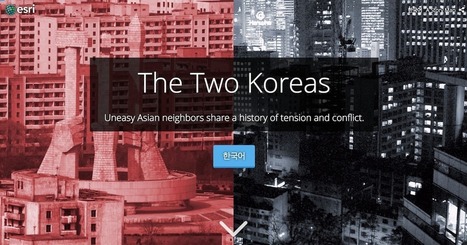"The U.S. Census Bureau has designed a multimedia application experience, a story map, called 'Rural America: How Does the U.S. Census Bureau Define Rural?' This story map contains interactive web maps, tables, information, and images to help explain how the Census Bureau defines 'rural.' Many rural communities rely on American Community Survey (ACS) 5-year estimates, rather than ACS 1-year estimates, because of population thresholds. This story map helps data users understand the history and definition of 'rural.' Watch this video and then visit the story map to learn more." Visit the Story Map: http://go.usa.gov/x8yPZ
Via Michael Miller



 Your new post is loading...
Your new post is loading...









